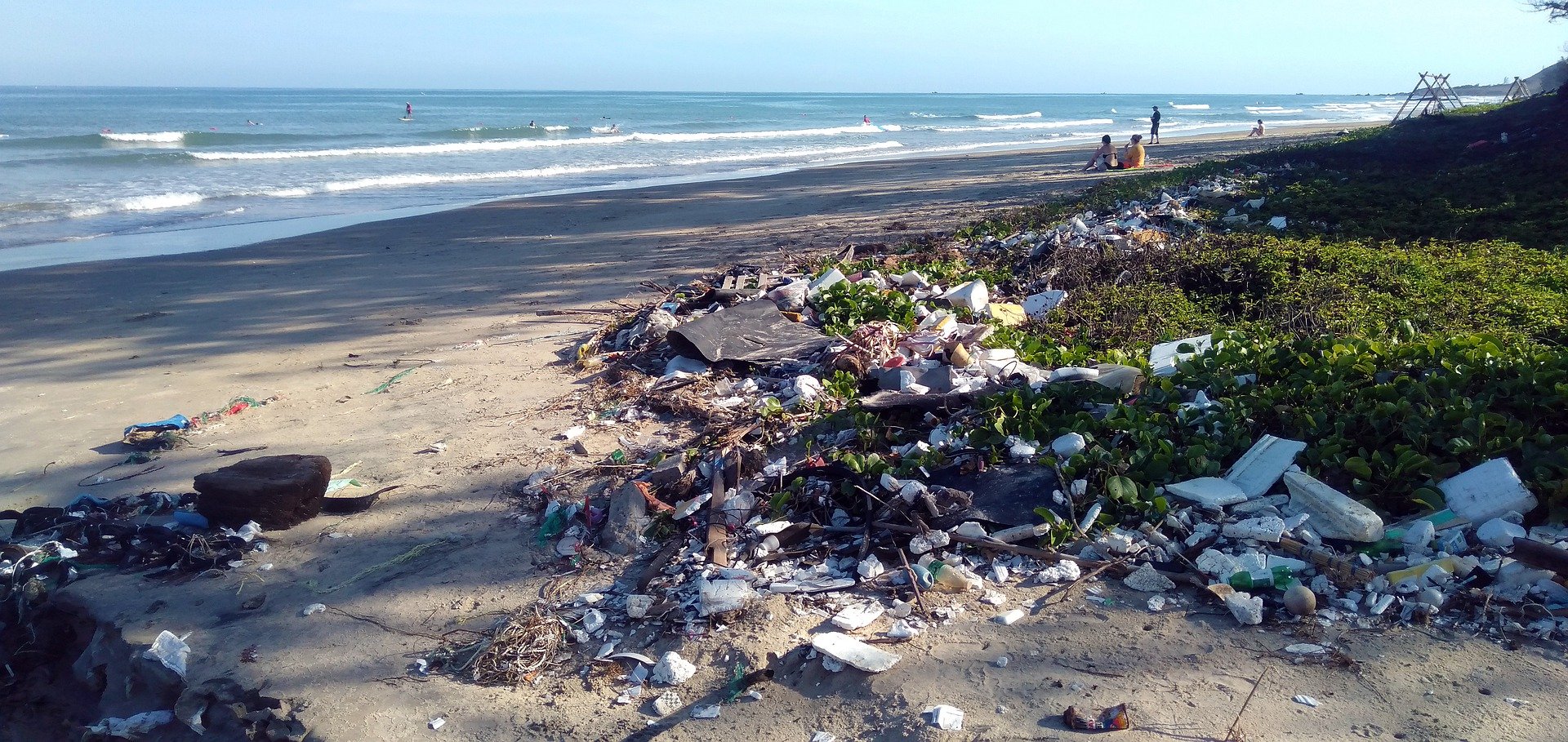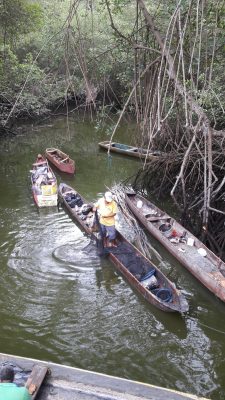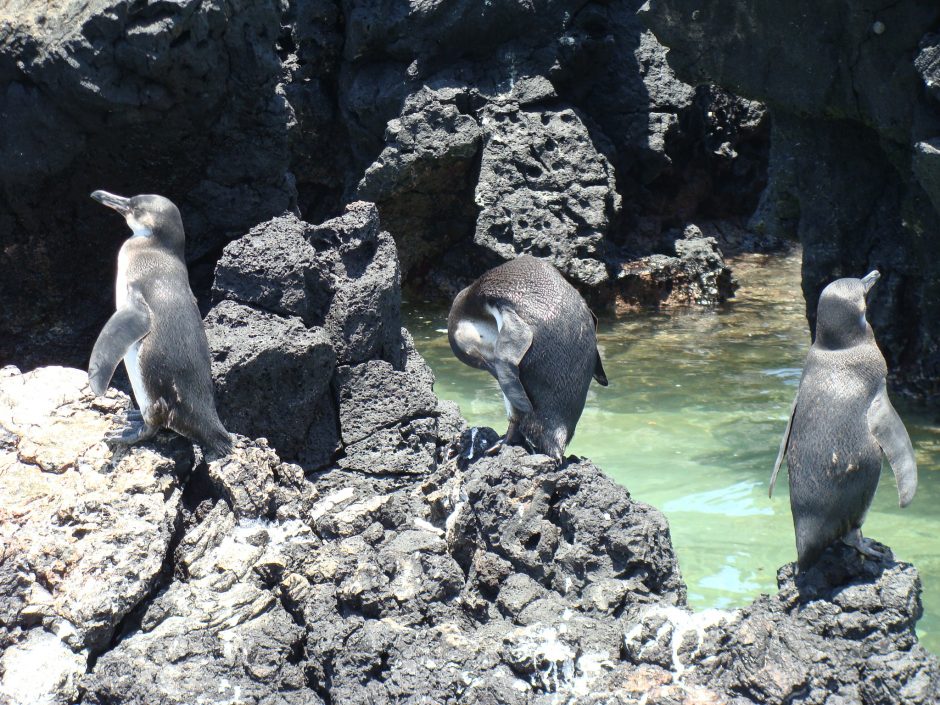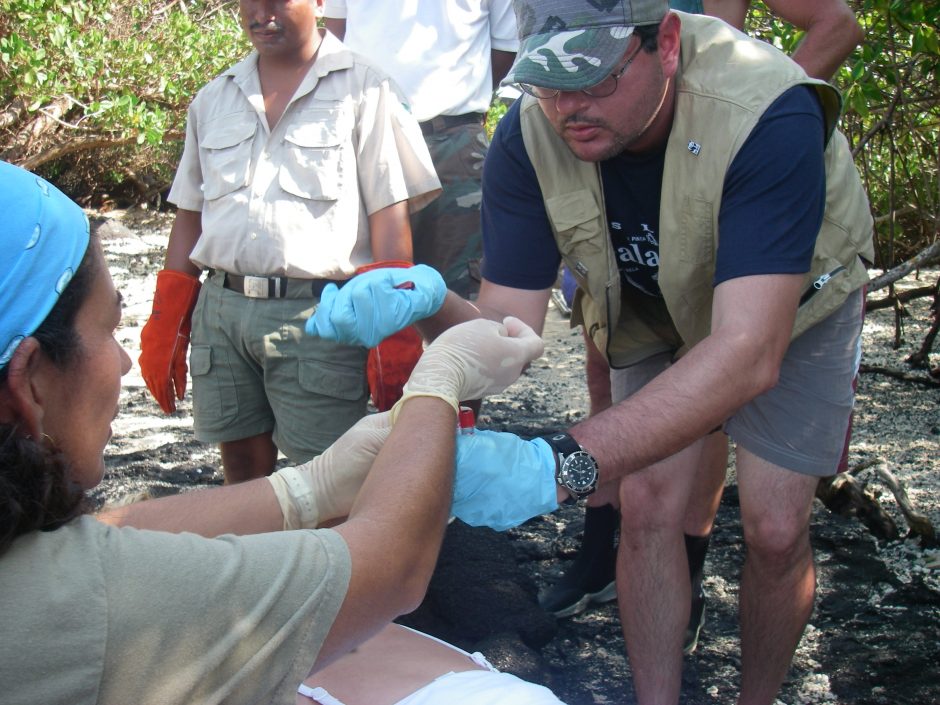
Pollution taints every corner of Earth’s oceans. Microplastics, fragments of plastic smaller than five millimeters, have been discovered in Antarctic ice; every square kilometer of the deep sea contains an average of four billion plastic microfibers; billions of pounds of waste and toxic chemicals get unloaded into the ocean each year, and new sources of ocean pollution are being discovered constantly.

Community survey for plastic pollution in Puerto Hondo, Guayaquil-Ecuador ©Juan Jose Alava
“I created this research unit to provide an academic niche, a new research arena for the IOF to study ocean pollution and marine ecotoxicology,” said Juan-José Alava, a research associate at the Institute for the Oceans and Fisheries (IOF) and the principal investigator of the IOF’s youngest research unit, the Ocean Pollution Research Unit (OPRU). “It was a need that was there in the IOF and UBC.”
Alava researches both “legacy” ocean pollutants – those that have been recognized for a longer period of time and studied by researchers – and “emerging” pollutants, lesser-studied, and newly-discovered varieties of ocean waste.
Recent and current projects have seen Alava collaborating with other researchers to uncover elevated levels of mercury in tuna and to examine tissues collected from stranded killer whales, searching for new contaminants of concern, like triclosan, a chemical found in toothpaste that may harm marine mammals.
But the project currently directing most of the OPRU’s attention is the study of microplastics.
“There is no corner of the ocean that is immune to microplastics – they are everywhere. We are talking about more than 5 trillion pieces of particle floating in the ocean today,” Alava said.
In a recent study, Alava and his colleagues discovered that microplastics have the potential to build up in ocean animals to the point that they may cause harm, a problem called “bioaccumulation.”
“What does that mean for food security and food safety and exposure to humans?” Alava said. “That’s a question to be answered. They’re one of the main pollutants, but they’re part of a much bigger problem we have today with the multiple stressors we are seeing. That’s one of the reasons I got involved, to contribute to filling in research gaps in the bioaccumulation science of microplastics.”
Penguins and plastics

Galapagos penguins ©Juan Jose Alava
Working alongside Alava, McMullen will determine how extensive microplastic pollution is in the coastal waters of Ecuador and use ecosystem and kinetic food web modelling to assess whether microplastics are bioaccumulating in the Galapagos penguin.
“I wanted to pick a flagship species that is kind of quirky, but also loved,” McMullen said. “There’s only around 2000 Galapagos penguins left, it’s the only penguin species north of the equator, and the fact that it’s endemic to those islands is really interesting. Also, plastics research started with seabirds like the albatross. To me, it was neat to stick with the theme of using a seabird as an indicator species.”
McMullen is also analyzing survey research and will be doing interviews with people living in the Ecuadorian mangrove forests to understand their perspectives on plastic pollution.
“Eighty per cent of individuals surveyed in the Ecuadorian community said they’re worried about marine litter,” she said. “It’s interesting to see which demographics or age cohorts are worried about marine litter’s impact on their own health and/or the community’s economy. Four people weren’t worried at all about health or the economy; they all were young mothers, around age 25. That really surprised me.”
This difference in attitudes could have something to do with “shifting baselines,” a theory proposed by IOF professor Daniel Pauly to explain how environmental changes become less remarkable to people over time.
“If we grew up with lots of garbage in the water that simply becomes the norm, our baseline,” McMullen said. “Maybe that’s what’s happening: younger cohorts in the community surveyed may be less concerned about the impacts of marine litter.”
A bright future for the OPRU?
Alava credits Evgeny Pakhomov, UBC professor and director of the IOF, for “opening doors and supporting the idea to make the OPRU a reality.”
Pakhomov advises Alava and helps lead the lab in his role as a professor at IOF. He also has a keen interest in studying ocean pollution.
Currently, Pakhomov is curious about records of discovering plastics in the fish poop – more precisely, he wants to know what happens to fish poop when plastics alter its buoyancy. It may slow its downward organic flux into the deep ocean, where it is vital to fuel the deep-water ecosystems. Changing the fish buoyancy may also come at the price of cutting short deep-sea predators’ food supply.
In his work outside the OPRU, Pakhomov has noticed ocean pollutants creeping through the marine food webs, being harmful to people.

Field collection of plastics, Ecuador ©Ana Tirape
“If the ecosystem is deteriorating and we’re picking this up already in the end of the food chain in salmon, for example, it’s already becoming an issue,” he said. “Then we need to do something about this. And that’s how I see the OPRU contributing to fisheries, sustainability, and oceans. Whether or not this unit will survive is up to Juan José’s enthusiasm and proactivity, but I hope that it will be a permanent unit in the Institute.”
When Alava looks to the future of the OPRU, he hopes that it has grown its body of graduate students and still has the support of UBC professors.
The OPRU has much work to do, according to Alava. After all, “There is always a new pollutant coming every year,” he said. Moreover, older pollutants don’t just disappear; even contaminants that are phased out continue to cycle through food webs or get released back into the ocean after marine animals die and decay.
Yet Alava remains hopeful not only that the research unit will remain a part of the IOF, but also that it will keep the public informed about ocean pollution and help advance policy that stops its toxic spread.
“The idea of doing this research is to provide better solutions for future generations,” he said. “Anthropogenic stressors are reshaping our ocean – it’s not the same ocean we had 30 or 40 years ago. As academics we need to provide solutions, not just answers to questions. We need to give information to policy-makers, and we need a political will.”
By Riley Tjosvold
Tags: Evgeny Pakhomov, fieldwork, IOF Research Associates, IOF students, Juan Jose Alava, OPRU, penguins, plastic, pollution, Research